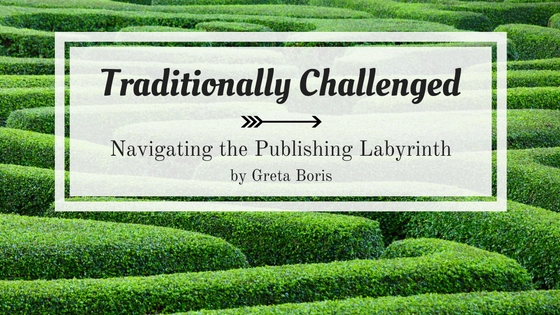by Greta Boris
Looking for your publishing dream team?
Most of us think if we could only find our publishing dream team—agent to the elite, Big Five press, superstar editor, the Picasso of cover designers, a marketing manager who can sell doughnuts to diabetics—we’d be as productive as James Patterson. Or, at least Nora Roberts. Or, maybe Stephen King.
But is that what we really need?
William Muir, a biologist at Purdue University, did a study on productivity with chickens. He used two control groups: one a flock of average birds, the other a group of super chickens. To create the super chicken flock he selected the most productive chickens from several flocks and put them together in one. He honed each generation by allowing only the best producers to breed. The average flock, he left alone.
What were the results after six generations?
The flock of unremarkable birds became remarkable. That is to say, they were fat and feathered and laying exponentially more eggs than they had in the past. Their productivity had increased. The super chickens? All but three were gone—pecked to death.
While the super flock might make an interesting thriller novel, most of us would rather feather a less remarkable nest.
What went wrong?
The old American corporate structure was built on the super chicken model, and as we know, much of corporate America is currently in trouble. The prevailing belief of that mindset is success is determined by the number of superstars on the team.
Dr. Muir’s experiment showed the exact opposite to be true. An entire flock of super chickens produced some pretty rotten eggs. The competitiveness and aggression needed to peck your way to the top, it turns out, are detrimental to creativity and productivity once you get there.
If you’d like to hear more about how this experiment applies to business, listen to Margaret Heffernan’s excellent TEDtalk on the topic. The link is at the bottom of this post.
How can writers protect their muse and find their flock?
Newer, innovative companies, whether they’re presses or manufacturers, tech corporations or service providers, have found fostering a creative culture increases productivity. When looking for your publishing dream team, it’s a good idea to keep the things they’ve learned in mind. Here are a few:
#1 Look for teams with diverse members:
Surrounding yourself with people who view the world exactly the way you do may be comfortable, but it won’t stretch you. Creativity and productivity is increased when we have to deal with disruptions. Find a critique group and other writing friends who disagree agreeably to help you hone your craft. Then look for a publisher who represents a varied group of authors.
#2 Take risks:
Competitiveness increases the fear of making mistakes. If I’m constantly looking over my shoulder to see if someone is gaining on me, I’m not looking ahead, pondering my options. Get your eyes off what everyone else is doing, and allow yourself to think about what could be done. Some of the new publishing models are bringing in more for their authors than older traditional ones. Working creatively within a traditional company could benefit everyone.
#3 Have a grateful spirit:
Nothing rots the creative bones more than envy. Envy says there’s only so much to go around, and the other guy has the lion’s share. The best antidote for envy is gratitude. A thankful heart makes you happier, healthier, more productive, and more likable.
Likability goes a long way toward finding a good agent or publisher. There are a lot of talented writers in the world. If an agent has the choice of working with a bitter, difficult person, or someone pleasant and cooperative, guess who they’re going to chose?
Bottom line:
Being a super chicken isn’t all it’s cracked up to be and nice chickens don’t finish last. If you want to find your publishing dream team, you’ve got to be a dream team player. As Grandma always said, “Birds of a feather flock together.”
Next month, I’ll explore how a generosity might just be the secret to selling more books.
How about you? What does your publishing dream team look like?

